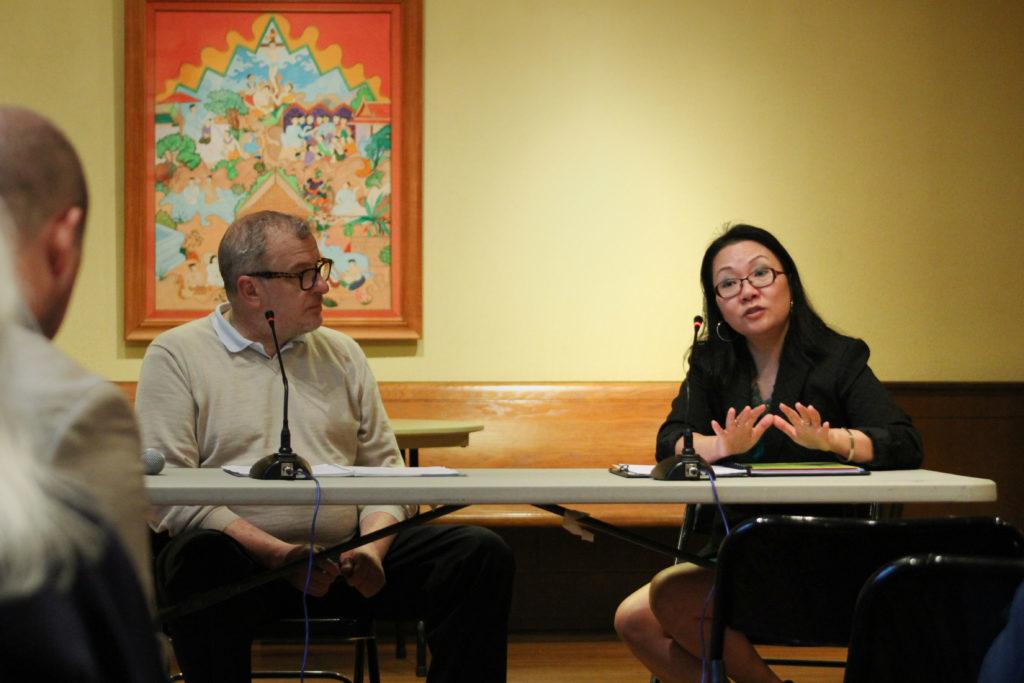A top D.C. official spoke with residents at the Foggy Bottom Association meeting Tuesday about health-related concerns like cleanliness and homelessness in the area.
HyeSook Chung, the deputy mayor for health and human services, said she went to the meeting to continue conversations about key issues between her office and the city’s residents.
“I know there were a lot of issues that came up last time,” she said referring to a previous FBA meeting she attended. “We came prepared to kind of update the group.”
Residents questioned Chung about littered trash in the neighborhood and how it perpetuates the area’s rodent problem. Some said trash left around Foggy Bottom, especially its busiest streets, often attracts rats.
Chung said the area is a hotspot for rodent infestation, but she had not heard of new efforts to fight the rat population. She said her office could look into scheduling more pickups for trash.
“I would love to have a follow up conversation about things that we can actually do,” she said.
Richard Livingstone, the public liaison for Ward 2 from the mayor’s Office of Community Relations and Services, said the District’s health department recently received a grant to build more trash cans equipped with solar panels.
He said the new cans have environmental benefits and also keep rats from getting inside the garbage because they have sealed lids.
“We’ve seen that, while trash cans are great, rats can still get into the trash, since it’s open,” he said. “The solar powered trash cans are actually rodent-proof in a lot of ways.”
Historically, Foggy Bottom has dealt with an increased amount of rats and neighborhood leaders have vowed to combat the infestation.
Chung said her office will focus on tackling homelessness in the neighborhood through outreach, but provided few details about the effort.
“We’re doing an internal assessment about what outreach should look like,” she said.
Kristy Greenwalt, the director of the District’s Interagency Council on Homelessness, discussed the council’s efforts to open more spaces for the homeless to spend time during the day.
Homeless residents often go to public libraries where they can use computers to communicate, check emails and apply for jobs, she said.
The public West End Library going in on 24th Street will not open until at least the late summer.
Greenwalt said the city is examining ways to open daytime stations for homeless residents equipped with showers and storage spaces.
“Finding that space is hard, but we’re looking at it,” she said.





